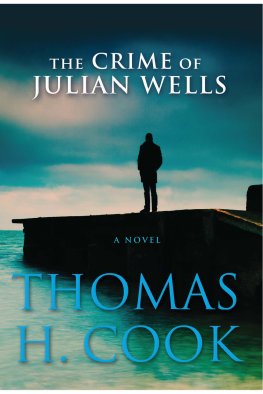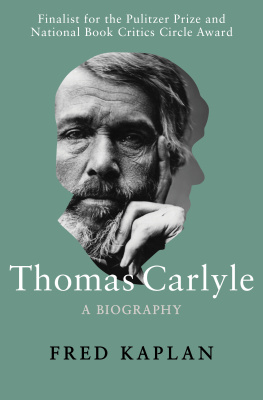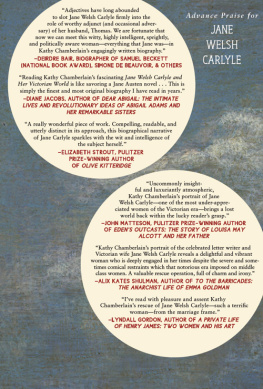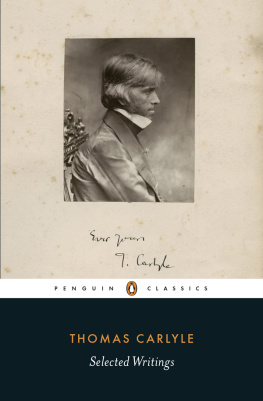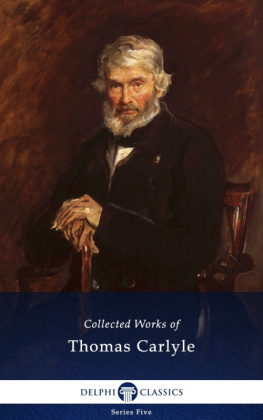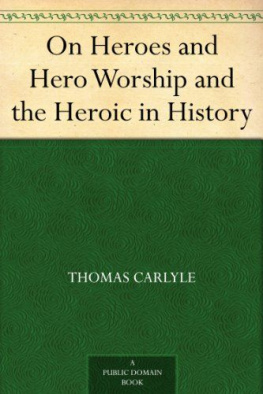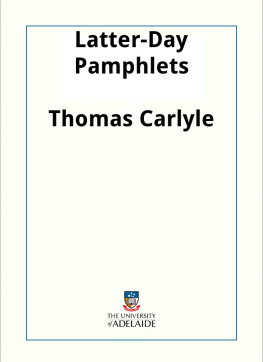Julian Symons - Thomas Carlyle
Here you can read online Julian Symons - Thomas Carlyle full text of the book (entire story) in english for free. Download pdf and epub, get meaning, cover and reviews about this ebook. year: 2001, publisher: House of Stratus, genre: Detective and thriller. Description of the work, (preface) as well as reviews are available. Best literature library LitArk.com created for fans of good reading and offers a wide selection of genres:
Romance novel
Science fiction
Adventure
Detective
Science
History
Home and family
Prose
Art
Politics
Computer
Non-fiction
Religion
Business
Children
Humor
Choose a favorite category and find really read worthwhile books. Enjoy immersion in the world of imagination, feel the emotions of the characters or learn something new for yourself, make an fascinating discovery.

- Book:Thomas Carlyle
- Author:
- Publisher:House of Stratus
- Genre:
- Year:2001
- Rating:4 / 5
- Favourites:Add to favourites
- Your mark:
- 80
- 1
- 2
- 3
- 4
- 5
Thomas Carlyle: summary, description and annotation
We offer to read an annotation, description, summary or preface (depends on what the author of the book "Thomas Carlyle" wrote himself). If you haven't found the necessary information about the book — write in the comments, we will try to find it.
Thomas Carlyle — read online for free the complete book (whole text) full work
Below is the text of the book, divided by pages. System saving the place of the last page read, allows you to conveniently read the book "Thomas Carlyle" online for free, without having to search again every time where you left off. Put a bookmark, and you can go to the page where you finished reading at any time.
Font size:
Interval:
Bookmark:
by JULIAN SYMONS
In a century or less all Europe will be republican -- democratic; nothing can stop that. And they are finding their old religions, too, to be mere putrid heaps of lies.
Thomas Carlyle toWilliam Allinghamin 1878.
NEW YORK OXFORD UNIVERSITY PRESS 1952
ONE. THE IMPERFECT TRIUMPH 9
TWO. BACKGROUND OF A PROPHET 22
THREE. THE DOMINIE 32
FOUR. EDINBURGH 45
FIVE. FROM JANE BAILLIE WELSH -- 61
SIX. -- TO JANE WELSH CARLYLE 73
SEVEN. COMLEY BANK 100
EIGHT. CRAIGENPUTTOCK 112
NINE. THE WRITING OF SARTOR 127
TEN. THE FRENCH REVOLUTION 147
ELEVEN. THE PROPHET ACKNOWLEDGED 161
TWELVE. HOME AND AWAY 181
THIRTEEN. THE NEW ARISTOCRACY 193
FOURTEEN. THE TURNING POINT 203
FIFTEEN. 1848 AND AFTER 214
SIXTEEN. THE SOUNDPROOF ROOM 230
SEVENTEEN. THE EPOCH OF OLD AGE 240
EIGHTEEN. THE LAST OF JANE 257
NINETEEN. THE PAST RELIVED 274
TWENTY. A LONG TIME DYING 281
TWENTY-ONE. THE PROPHET'S FATE 290
INDEX 301
It will be difficult for the future -- judging by his books, personal dis-sympathies, etc., -- to account for the deep hold this author has taken on the present age, and the way he has color'd its method and thought. I am certainly at a loss to account for it all as affecting myself. But there could be no view, or even partial picture, of the middle and latter part of our Nineteenth century, that did not markedly include Thomas Carlyle.
WALT WHITMAN: "Carlyle from American Points of View."
WHEN, IN NOVEMBER 1865, Thomas Carlyle was elected Rector of Edinburgh University, leader-writers, literary critics and personal friends all recognized that the event had something more than a local importance. It was notable enough that this should be the first official recognition given by Scotland to its most famous living man of letters; but the chief interest of the election lay undoubtedly in its social, and even political flavour. The retiring Rector was Gladstone, and Carlyle's opponent was Disraeli: so that when the figures were announced:
Thomas Carlyle | |
Benjamin Disraeli |
the result seemed a symbolic triumph for some kind of political idealism over the materialist machinations of Disraeli, who had been called by Carlyle at various times in the past a man almost professedly a son of Belial, a liar, a conscious humbug, a pinchbeck Hebrew, and a vendor of old clothes. The new Rector had been almost as hard upon Gladstone, whom he regarded as a man of some faculty, but ponderous and wordy, "gone irrecoverably into House of Commons shape" and thus "possessed by the Prince, or many Princes, of the Power of the Air".
The triumph, then, was for the Carlyle faction: but who belonged to the Carlyle faction, and what were its views? It was certain, at least, that they were separated from those of Disraelian Conservatives and Gladstonian Liberals by what Carlyle himself called abysmal chasms and immeasurabilities. Carlyle had been concerned throughout his life with problems of social action and the means of creating a harmonious community; and yet he had persistently avoided linking himself with any political group or party. That this isolated figure should have succeeded the leader of the Liberal Party, and defeated so decisively the leader of the Conservatives, was a remarkable tribute to the vague but widespread feeling of his importance in Victorian society. His popularity was recent. When, eleven years earlier, some students had nominated Carlyle for the position of Rector of Glasgow University, he had been vilified in the press, the benches of the room in which his supporters met had been broken, and he had at last withdrawn his candidature.
Among all those involved and interested in the election the person apparently least affected was Carlyle himself. In the previous year he had refused to accept the nomination against Gladstone on the ground that he was still occupied with his book about Frederick the Great. Now, after more than thirteen years' labour, that book was finished: but still, as he told the student who came to see him, there were difficulties. He was nearly seventy years old, and suffering as always from what he called dyspepsia -- "weak as a sparrow", he told his brother Dr. John Carlyle, "liver and nerves deeply wrong". And, most important, there was the customary installation speech which, Carlyle declared, he positively could not manage. With gallant rashness the young student said that they would dispense with the speech; and on this understanding Carlyle accepted the nomination.
It became plain after the election, none the less, that an address of some kind must be delivered; and Mrs. Carlyle confidently assured friends that it would be forthcoming in good time, while Carlyle himself said that the whole affair was a bore which must be endured patiently, since certain friends had been kind enough to take trouble and interest in it. He found himself unable to adhere to the usual practice of writing a speech in advance; and an additional uncertainty about whether the speech would actually be delivered was thus added to the normal hazards of travelling, which assumed always a monstrous aspect in Carlyle's eyes. To alleviate as much as possible the agonies he must endure Carlyle arranged to break his journey to Edinburgh for a short stay with Lord Houghton, formerly Monckton Milnes, at Fryston in Yorkshire; in Edinburgh he chose from several possible hosts his old friend Thomas Erskine, whose house might, he hoped, be out of the sound of railway whistles. As the time of departure from his Chelsea home approached, Carlyle became more and more apprehensive that he would break down; and he was not noticeably cheered by the further reflection that since he was old and weak, his breakdown would signify little. His wife's attempts to keep up his spirits were somewhat marred by her fear that he might fall into a fit or drop dead with excitement. She rejected because of her own poor state of health the idea of going with him. Supposing that she should drop dead too? "Then", as she mildly observed, "there would be a scene". She contented herself with making careful preparation of everything that her husband would need. When he had last delivered lectures, more than twentyfive years earlier, he had been much assisted by occasional nips of brandy; now she gave him her own small travelling flask with a single glass of brandy in it, to be mixed and drunk before delivering the address.
On the 29th March, 1866, the scientist John Tyndall called at the Carlyles' small house in Cheyne Row. Tyndall, T. H. Huxley, and Carlyle's Edinburgh host Thomas Erskine, were to receive the honorary degree of Doctor of Laws before the new Rector's installation; and Tyndall had agreed to take charge of Carlyle on the journey. The philosopher was punctually ready. He drank a tumbler of old brown brandy and soda poured by Mrs. Carlyle. Husband and wife kissed each other goodbye. Mrs. Carlyle said to Tyndall at the door, "For God's sake send me one line by telegraph when all is over"; and the two men drove away.
John Tyndall, who looked after Carlyle on this expedition "like an adoring son", was at this time fortyfive years of age, and already a famous man. The son of an Irish shoemaker who had become a member of the newly-formed Irish Constabulary Force, Tyndall worked as an ordnance and railway surveyor before finding fully congenial employment for his talents as a practical scientist. These had first been shown when he was appointed to teach mathematics and surveying at Queenwood, the "Harmony Hall" of early Socialism; the inscription "C of M, Commencement of the Millennium" was worked into the brickwork of this experimental school, which was the first in England to adopt practical field and laboratory work in teaching applied science. From Queenwood Tyndall graduated to the poorly-paid but influential post of Professor of Natural Philosophy at the Royal Institution. A collaborator of Faraday and the intimate friend of Huxley, Tyndall was one of those wonderfully practical and penetrating men of science, with an immense range of energies and interests, who flourished in the Victorian age. His researches included experiments into the nature of magnetism, light, heat and electricity, into the cleavage of rocks and into the character of the atmosphere as a vehicle of sound; he was an ardent mountaineer and a writer of remarkable fluency, whose essays on subjects as diverse as the sabbath, the rainbow, and common water, can still be read with pleasure.
Font size:
Interval:
Bookmark:
Similar books «Thomas Carlyle»
Look at similar books to Thomas Carlyle. We have selected literature similar in name and meaning in the hope of providing readers with more options to find new, interesting, not yet read works.
Discussion, reviews of the book Thomas Carlyle and just readers' own opinions. Leave your comments, write what you think about the work, its meaning or the main characters. Specify what exactly you liked and what you didn't like, and why you think so.

